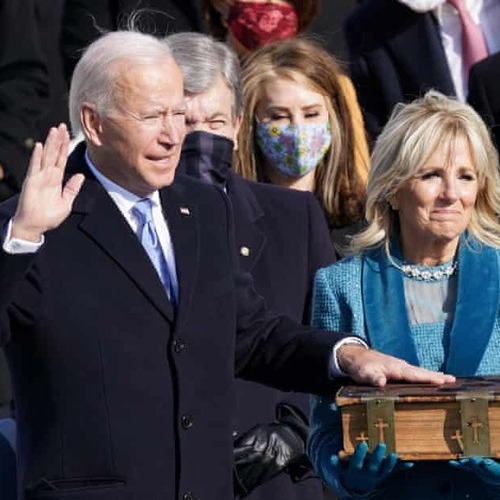Last week we witnessed the inauguration of a new President and with it, a new shift of power and leadership in our country. If you watched closely, you might have heard the phrase “so help me God” at the end of the oath of office. While there is no law that this phrase be used, it has been a historical precedent that some believe can be traced back to George Washington’s first inauguration as President. Every President since Franklin D. Roosevelt has used it. Why is this significant and what message does it convey? The phrase acknowledges several things about a leader’s ability to accomplish the things that are contained in this highest oath of our land.
First, it acknowledges that God is still the one who establishes kings. The prophet Daniel knew a thing or two about how kingdoms rise and fall. He and his people were being held in captivity. He would come to serve as a scholar slave under several tyrannical kings in his lifetime and all the while he received prophecies of all the future major kingdoms that would be established on the earth. He said, “Blessed be the name of God for ever and ever: for wisdom and might are his: And he changeth the times and the seasons: he removeth kings, and setteth up kings.” (Daniel 2:20-21). We must remember that it is still God that removes leaders and sets up new ones in our world today.
Second, it acknowledges that by their own power, leaders have no means to fulfill their oaths to the country. The one who says “so help me God” is confessing that he has no ability to “faithfully execute the office of the President of the United States” or to “preserve, protect, and defend the Constitution” apart from God’s providence and grace. This was confirmed by Jeremiah the prophet when he declared, “O LORD, I know that the way of man is not in himself: it is not in man that walketh to direct his steps.” (Jeremiah 10:23). We must remember that the ability to accomplish anything of merit is entirely dependent on God’s provision in our lives, for He tells us that “without me, ye can do nothing.” (John 15:5).
You may be skeptical that our leaders always think through these implications when taking the oath of office. That is probably true. For many, it has become a trite phrase of archaic formality. Yet, even if the words were to be eliminated from future presidential oaths, the truth would remain the same. These same truths are meant to give us hope in our leadership as well. We will not always be happy with our leaders or their policies, but we can trust in these principles about God’s continued intervention in their lives and in our country. Our leaders have been established by God and we have an obligation to pray for them, for their families, for their circle of influence, and for their salvation. God doesn’t make mistakes and there are many cases throughout scripture where terrible kings were used to accomplish God’s purposes. Take comfort as well in the fact that our leaders can’t ever leave the path of God’s permissive will for them. Remember, “the way of man is not in himself.” Our leaders may think they have their own power and autonomy, but it only goes as far as God allows. Proverbs 21:1 assures us that, “The king's heart is in the hand of the LORD, as the rivers of water: he turneth it whithersoever he will.”
Have you acknowledged these truths for your own life as well? We also need God’s help each day. We also need to acknowledge our dependence on Him, for our only ability to accomplish anything of merit is to declare, “so help me God!”
1 O God, our help in ages past, our hope for years to come, our shelter from the stormy blast, and our eternal home; 2 Under the shadow of your throne your saints have dwelt secure. Sufficient is your arm alone, and our defense is sure. 6 O God, our help in ages past, our hope for years to come, still be our guard while troubles last, and our eternal home. (lyrics from “O God Our Help in Ages Past” by Isaac Watts)

